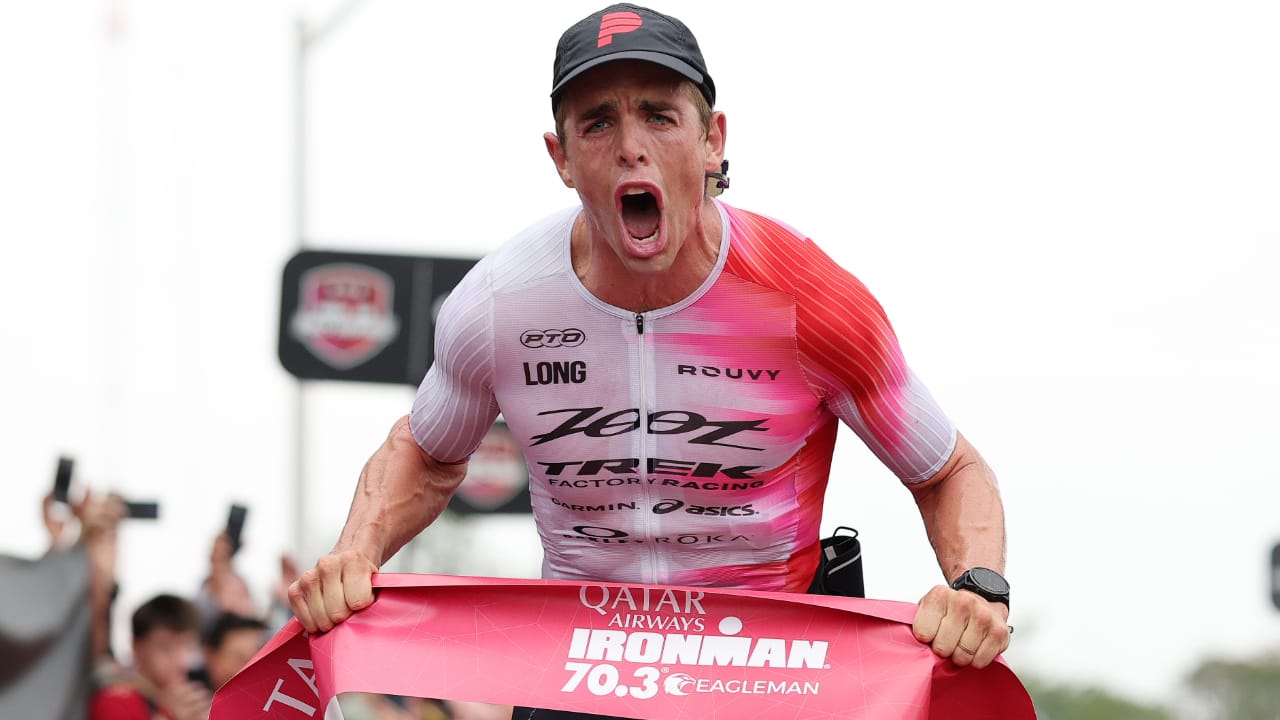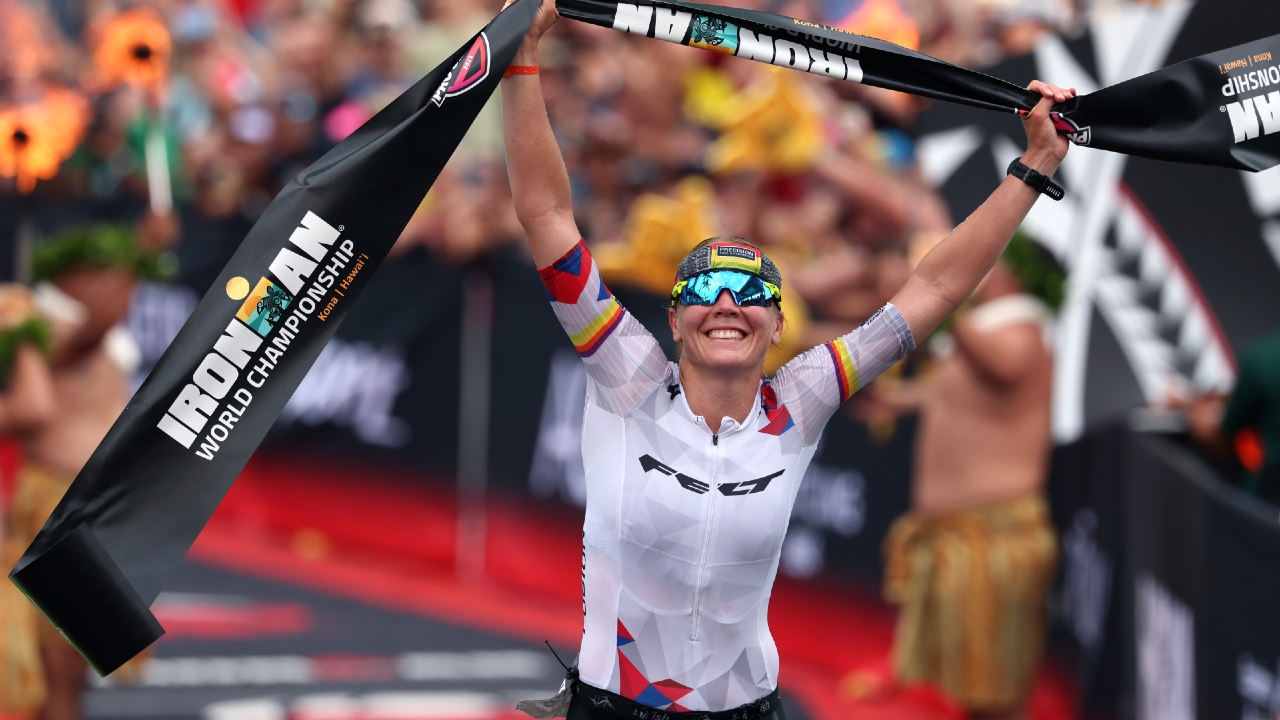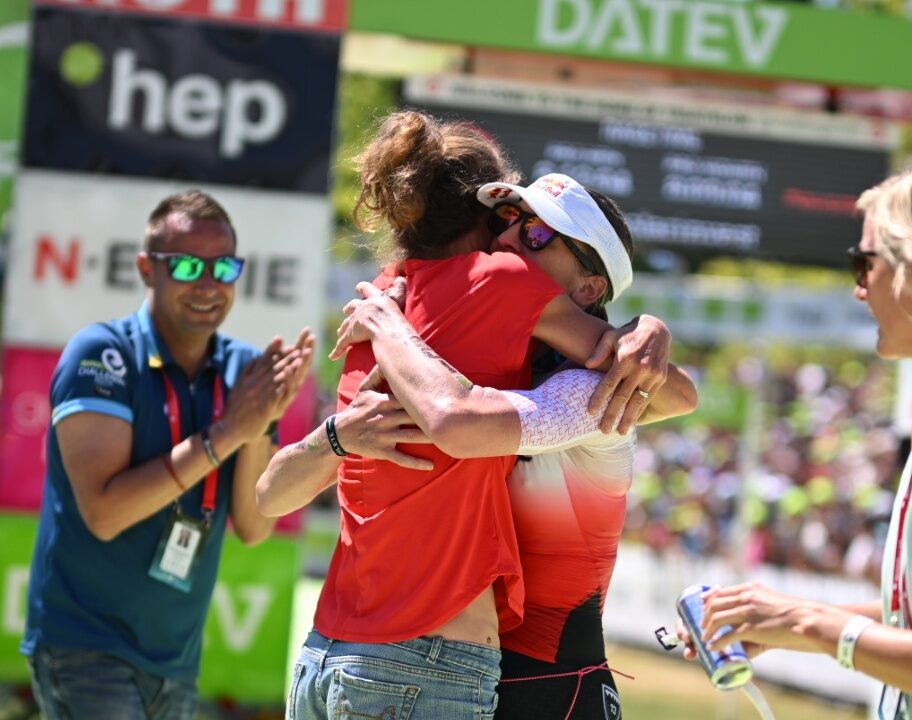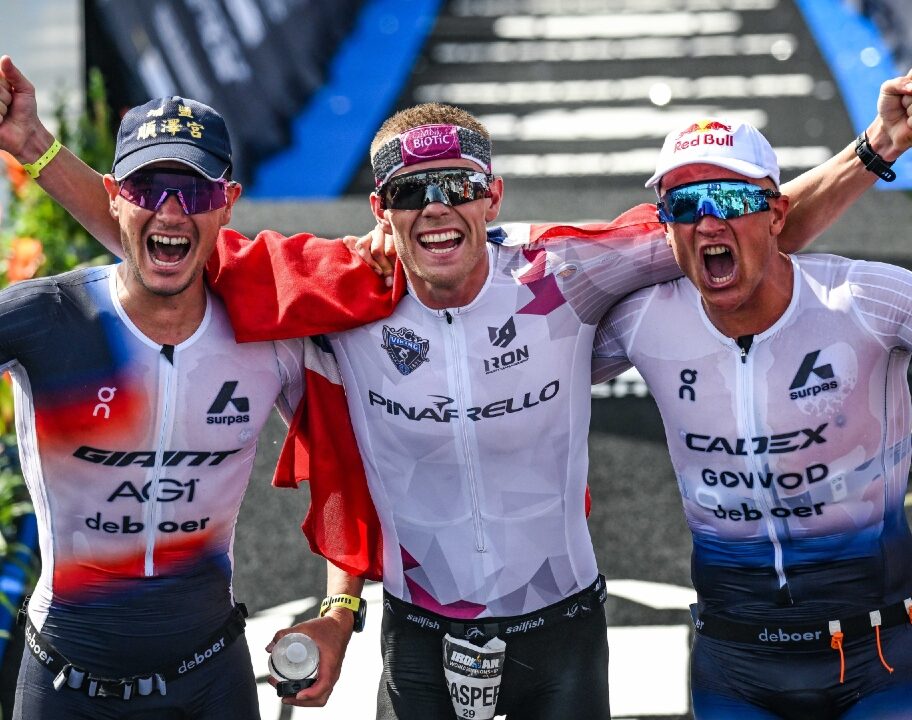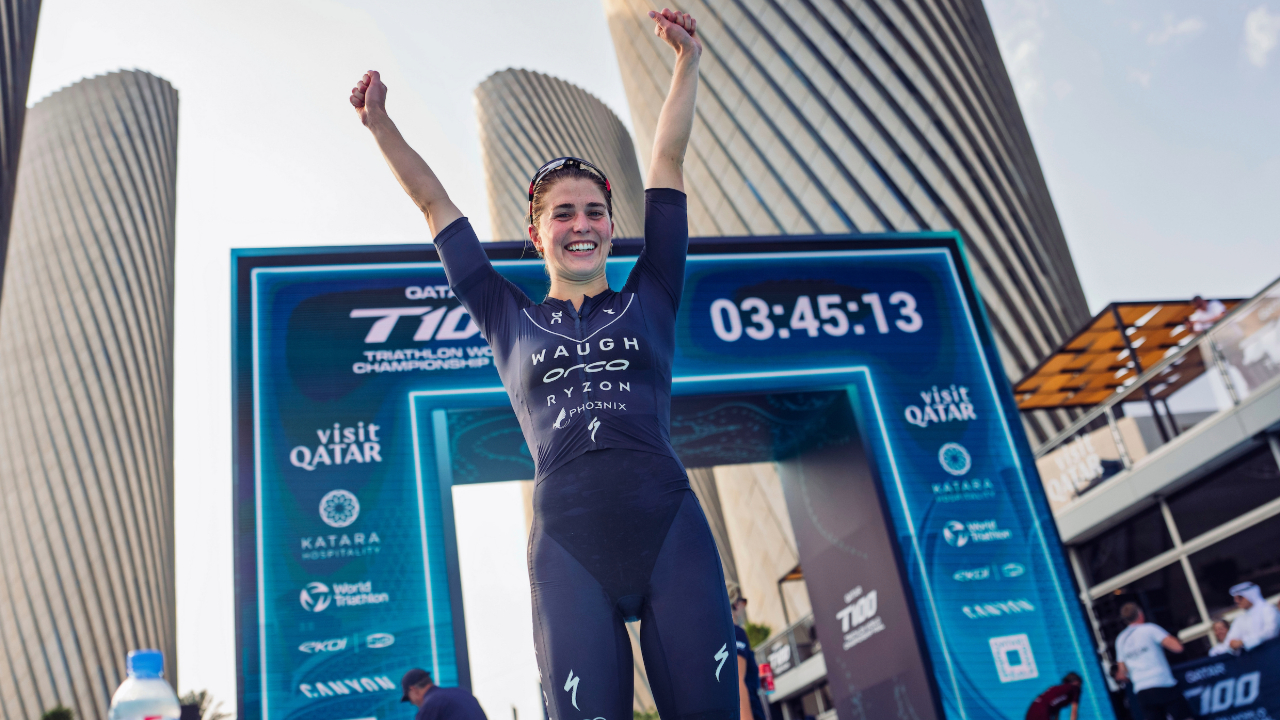After a debut IRONMAN season that she admits was only ever meant to be about the discovery and acclimatisation of triathlon’s longer format, Solveig Løvseth has just about come to terms with the enormity of becoming world champion at the very first time of asking.
Having taken the leap from short-course racing to join the Pro Series, the Norwegian went on to stun the world – and indeed herself – by securing what was a historic and hugely dramatic victory at Kona.
Little more than a month on from that famous day on the Big Island, and Løvseth has finally been able to not only take stock of her stunning title win but also place a renewed focus on making sure that she puts herself into a position where she can challenge again in 2026.
Here, in an honest and fascinating interview, she tells TRI247 reporter Matt Reeder about her plan to come back even stronger next year, explains why the Olympics window is closing rapidly, and talks about her latest link-up with fellow Norwegian champions Kristian Blumenfelt and Gustav Iden at Swiss sportswear giants On.
Hard work starts now in bid for a 2026 repeat
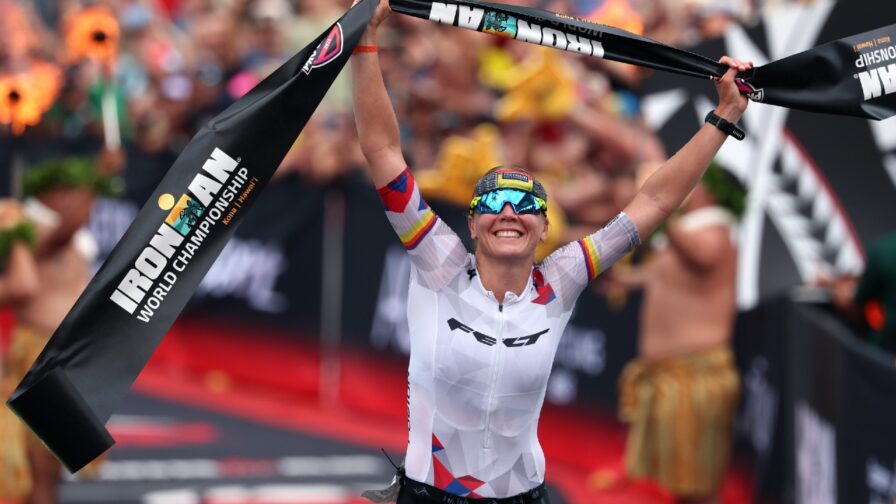
Has your stunning IRONMAN World Championship win sunk in yet?
“I think it’s sort of sinking in gradually, although I can still sometimes think about it and be a bit like, ‘Oh, did that really happen?’. But I’m also starting to look forward to next year, which will be exciting as well.
“When I raced at Marbella [at the 70.3 World Championships], it was only four weeks after Kona, so I think I was in a state of mind where I was just very satisfied with the season, and especially with Kona, and maybe not in the place you need to be to really, really dig deep or to do the training quite as good as possible for that race.
‘I wasn’t where I needed to be’
“I did really enjoy the race, and I enjoyed my time in Marbella, but I wasn’t where I needed to be mentally. The hunger wasn’t really there at that point. That is starting to come back now.
“That is not to say that I wasn’t motivated, but I was sort of too satisfied.
“It’s great to feel like that sometimes, and I think it is also good to actually let that soak in, and I think it’s also good that I’m able to enjoy a result that I’m really proud of, but at a certain time, you also need to move on, I guess.”
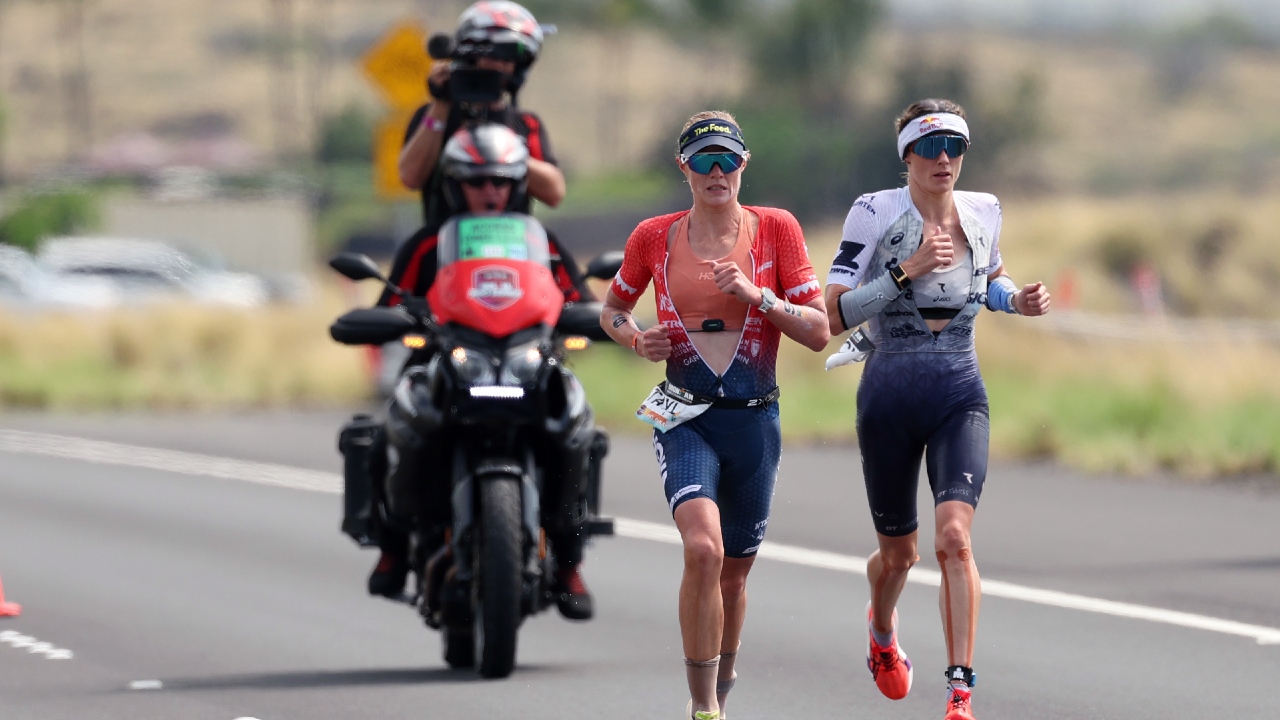
What was going through your mind when you went past Lucy Charles-Barclay and Taylor Knibb to take the lead in Kona?
“It was definitely not the way you’d want to pass any other athlete. Both Lucy and Taylor are two people I respect so much, and they are just great people, and I also look at them as some of the people who have a lot of experience and perform consistently.
“When I first passed Lucy, she had already stopped, so I just saw her at the side of the road together with Reece. It was a really weird feeling, because usually when you catch people, you are gradually getting closer and closer, but in this case, suddenly the gap was gone, and you think, ‘Oh, well, what has happened?’.
“Of course, you want to beat people when they’re having their best day, and it’s never fun to see athletes having to pull out. It was the same with Taylor as well, especially when it was so close to the finish line.
‘It was nice to see Lucy win in Marbella’
“You have really mixed feelings, but at the same time, you’re also thinking about your own race, and when I was passing Lucy first, I was like, ‘Oh, OK, I’m in second,’ and already at that point, I was thinking that second is a better result than I was expecting.
“It felt a little bit surreal to be in second, and then when I was suddenly in the lead, that was even more surreal.
“It was nice to see Lucy win in Marbella and also to see Taylor take second place there. I think it was a really cool race, and they were not just first and second; they were really dominating that race. So I am really happy for them, and it was really cool to see how they were able to turn it around after Kona; it was just super impressive.”
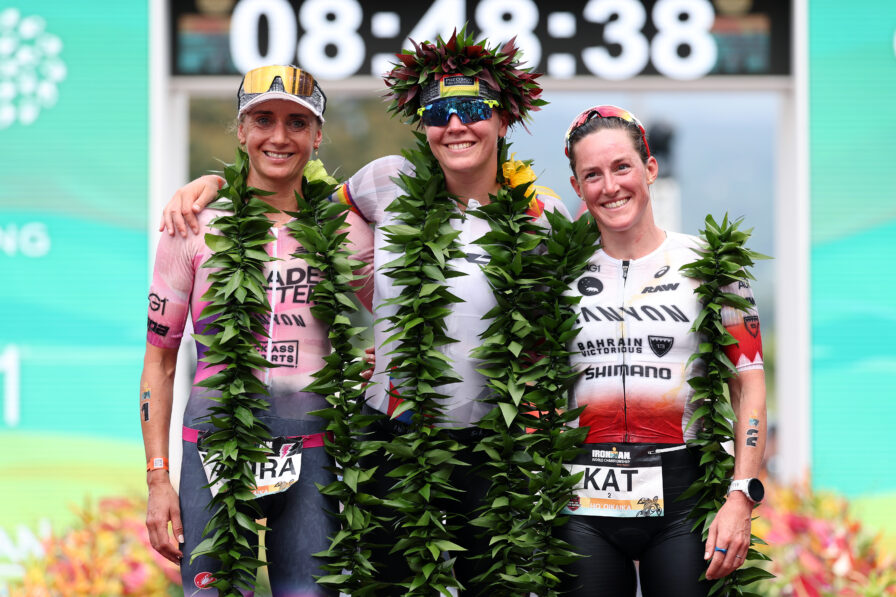
Where’s your trophy and your medal? Casper Stornes says he has locked his away in a drawer after winning the men’s title; do you have yours out on show?
“I haven’t gotten it back home yet because they are shipping it from Hawaii. I already had a lot of luggage, so that’s really nice of them, but I think the shipping can take some time, so I still haven’t figured out the place for it yet.
“It’s a big trophy as well, like a big bowl. But I’ve heard that you can’t actually have anything in the bowl. It needs to be empty. I spoke to some of the locals, and they said that you need to let the energy flow from it. So, maybe putting it in a drawer wouldn’t be the ideal place for it.”
‘I’m definitely excited to get back into training’
What steps have you taken to ensure that you maintain that hunger for more success?
“It’s mainly about time. I haven’t been training that much recently. I have enjoyed a bit of an off-season, which has been great. Usually in the off-season, I feel like I do train quite a lot. I’m allowed to train – I do whatever I feel like, basically – but this year I am taking it really chill.
“I’ve been training much less than normal, which has been nice, but now I’m definitely excited to get back into training again.
“I feel like I’ve been training really well the whole year, but I didn’t really have any specific goals set when we started – for me it was just about checking out what IRONMAN is all about and learning a lot and getting used to that distance and trying something new.
‘I know what I am capable of on my best day’
“Next year, now that I’ve actually been able to win in Kona, I know what I am capable of on my best day. I know that I can do that now, and I feel like it’s natural to also have that as a goal again for next year.
“I know it will be super hard to repeat it, really hard. But it’s still something that motivates me now, to be able to see if I can do that again.”
What was the reaction of your international colleagues and friends, Casper Stornes, Kristian Blummenfelt and Gustav Iden in the weeks after your epic win?
“I haven’t actually seen them that much this year, but it’s really cool that we, as a team, can do really well.
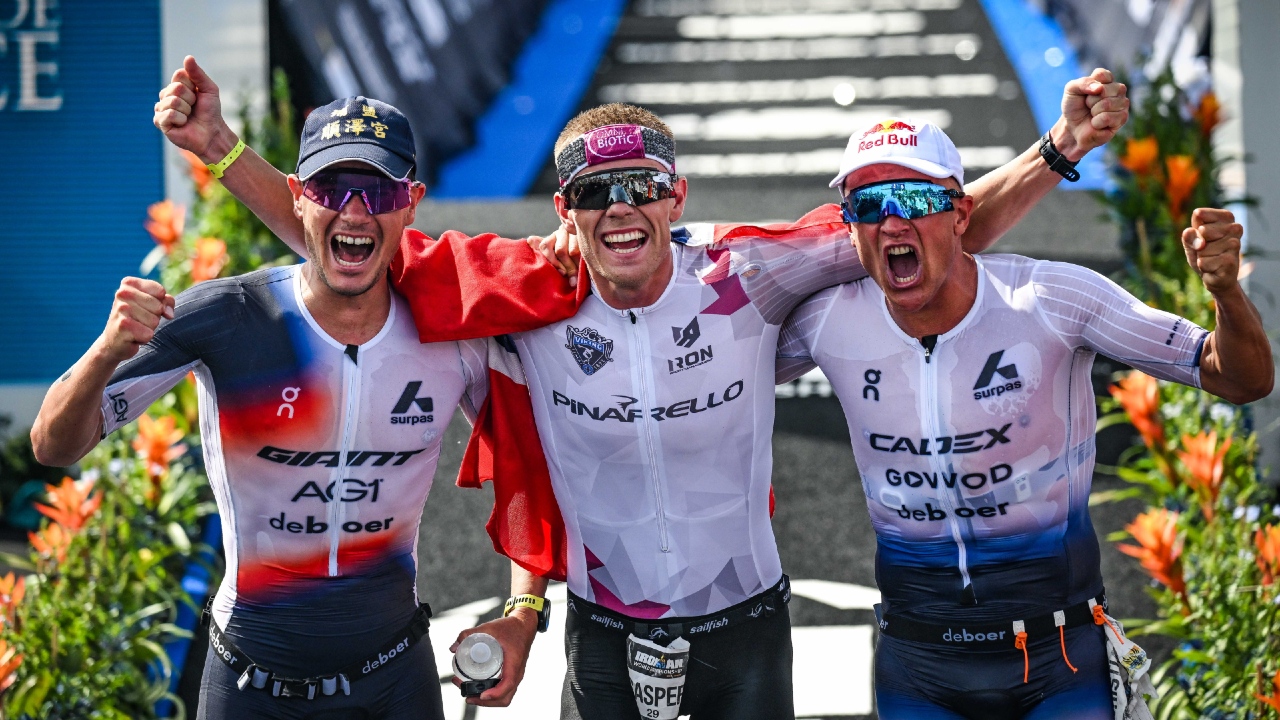
“We’re not in the national team, any of us, and they are training together and have been on a lot of different camps this year, but I think we’ve obviously all been in the national team for so many years, and we have been training so much together over the years, and we do know each other really well, and for me, I thought it was so cool to see how successful they have been this year.
“I know they also think it is cool that I have been able to have a successful year. We spent some time together in Marbella, which was really nice.”
Talking of the national team, have you given any thought to the Olympics and LA 2028? Will you be trying to qualify for the Norwegian team after your mixed emotions in Paris?
“I’m definitely thinking about it. You always want to try to do it all. But right now, I don’t see it as likely that I will try to qualify for it.
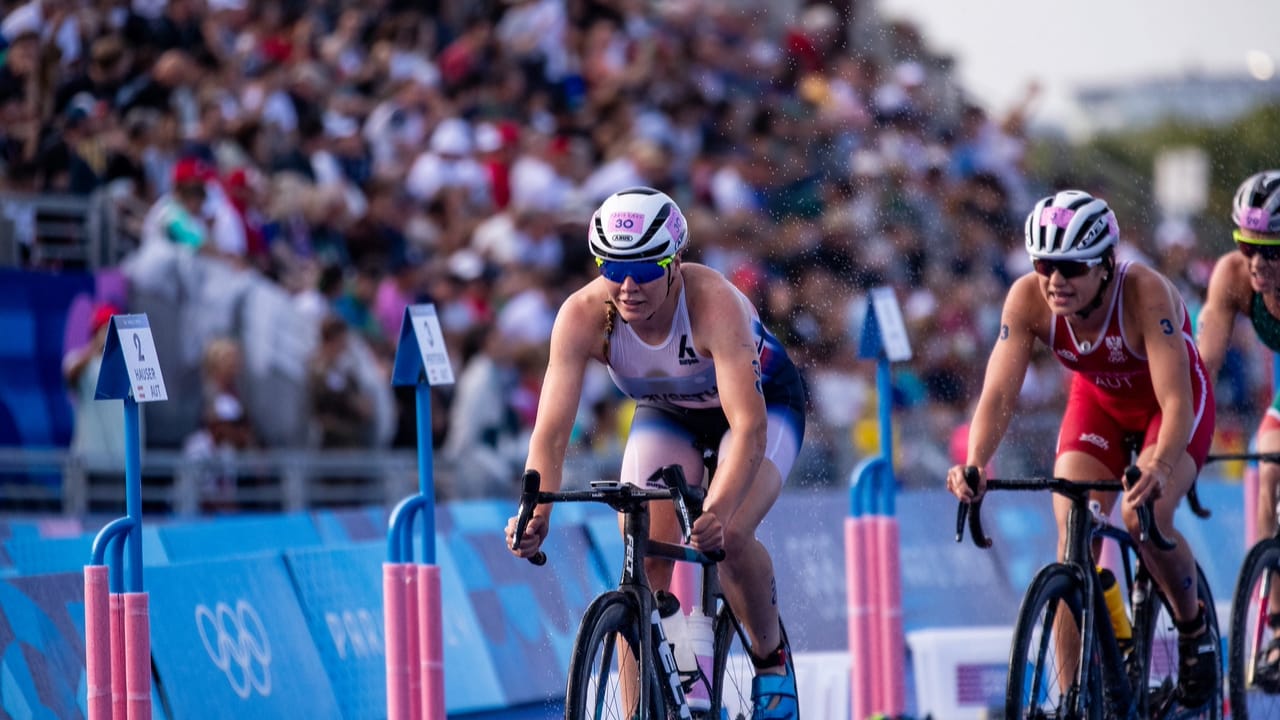
“I don’t really like making decisions, so I haven’t officially closed the door, but I just really enjoyed doing the Pro-Series this year, and that’s what I think I’ll do again next year as well.
“I haven’t planned next season that much yet; I think me and my coach Mikal Iden will sit down soon to look at that. I am just having a break first, before I really look at my targets for next year.
‘I haven’t closed the door on the Olympics’
“If I don’t do any short-course races next year, it’s already starting to get quite tight with getting the ranking up and getting the Olympic ranking, especially since it is a two-year qualification period.
“I haven’t closed the door, but the opening of the door is quite small, I think.”
Do you see yourself and the likes of Kristian, Gustav and Casper as an example for young Norwegians who may want to take up triathlon or IRONMAN in the future? What would it mean for you to be able to inspire the next generation?
“If I can inspire someone, that’s great, and that’s something I hope I can do. Right now, I’d say, in Norwegian triathlon, there are not that many young people coming through; the recruiting has always been a bit hard.
“I especially wish that more girls would do the sport. We don’t really have that many girls in the national team now. Actually, that’s sort of a trend, I would say, in most of the individual sports in Norway; at least in endurance sports, we have a lot of men that are doing really well, but not that many women, and I don’t really know why.
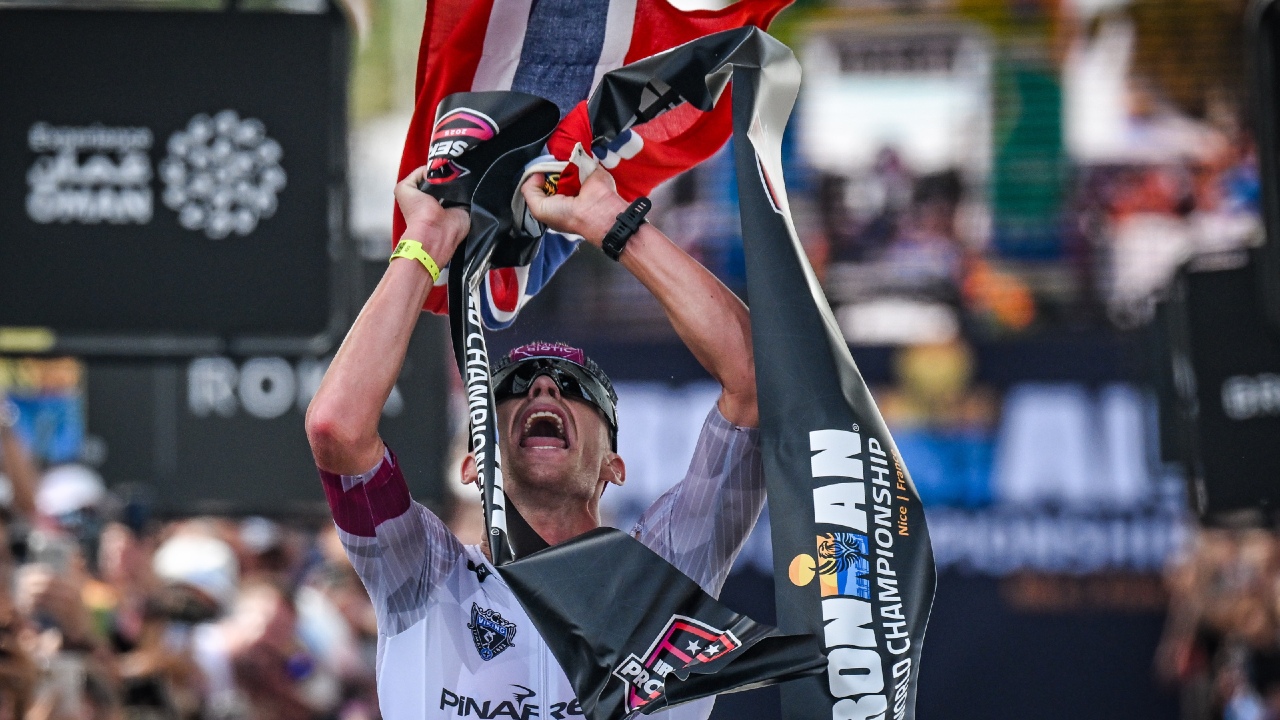
“It has been the same in triathlon for many years with Kristian and Gustav and Casper and a lot of the others as well, always doing really well. And we’ve not had that many girls, at least not at that level.
“We have obviously seen Lotte (Miller) competing at the Olympics, but nobody that has really been able to take those medals as the boys have been doing.
Keen to help inspire the next generation
“It’s really cool that I had this race in Kona, where I was actually able to do something the same as the boys have been doing. They have obviously been doing it more times than me, but if that can inspire someone else to start triathlon in Norway, that’s great, especially if it can inspire some girls.”
If you were to talk to a young girl who was thinking about taking up triathlon, what would you tell them?
“I think it’s a lot about being patient, really. I have been doing this sport for ten years now, and I did swimming before that, and I feel like I’ve been doing it for ten years without that much success.
“I’ve had some progression and some races that I have been really happy with, but as a junior, for instance, I was really not that good; I was almost last in all my junior races. So, you do take time to get better, and I think, of course, to be able to continue for a lot of years, it’s also important that you do enjoy it.
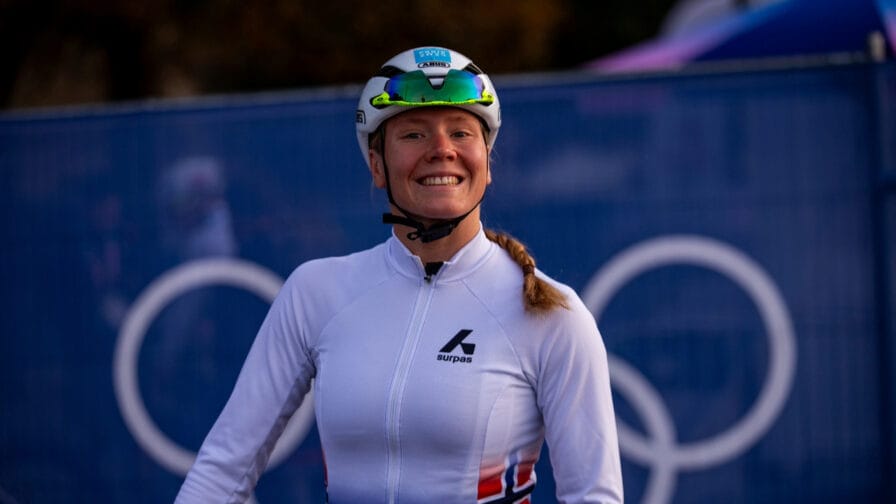
“It’s more important to stay in the sport than to be the most professional from a really early age. So when you’re younger, just have fun with it and do it in a way that is sustainable for you.
“I think a lot of people end up quitting early because they’re taking it too seriously, too early, and they don’t feel like they’re getting the results they want right away.
‘I’ve learnt that I like the longer distance more’
“If they don’t enjoy it enough at that time, it’s just easy to quit. But if, instead, you are just making sure it’s fun and you stay in the sport for a long time, then you only need to get better a little bit each year, and at some point you will be quite good.”
You’ve had a really good year. You’ve won a World Championship that, even you said, you didn’t really expect. What have you learnt about yourself?
“I always find it quite hard to reflect on myself, but I do think I’ve learnt that I like the longer distances more, and I think I also learnt that I do race well when I’m a bit more relaxed going into the race and when I enjoy the training leading up to it.
“Of course, it is easier to enjoy the training and the process if your results are good, but I feel that I perform at my best when I’m able to be in that sort of headspace, where I’m not getting that nervous and just treating the race as like a long training day.
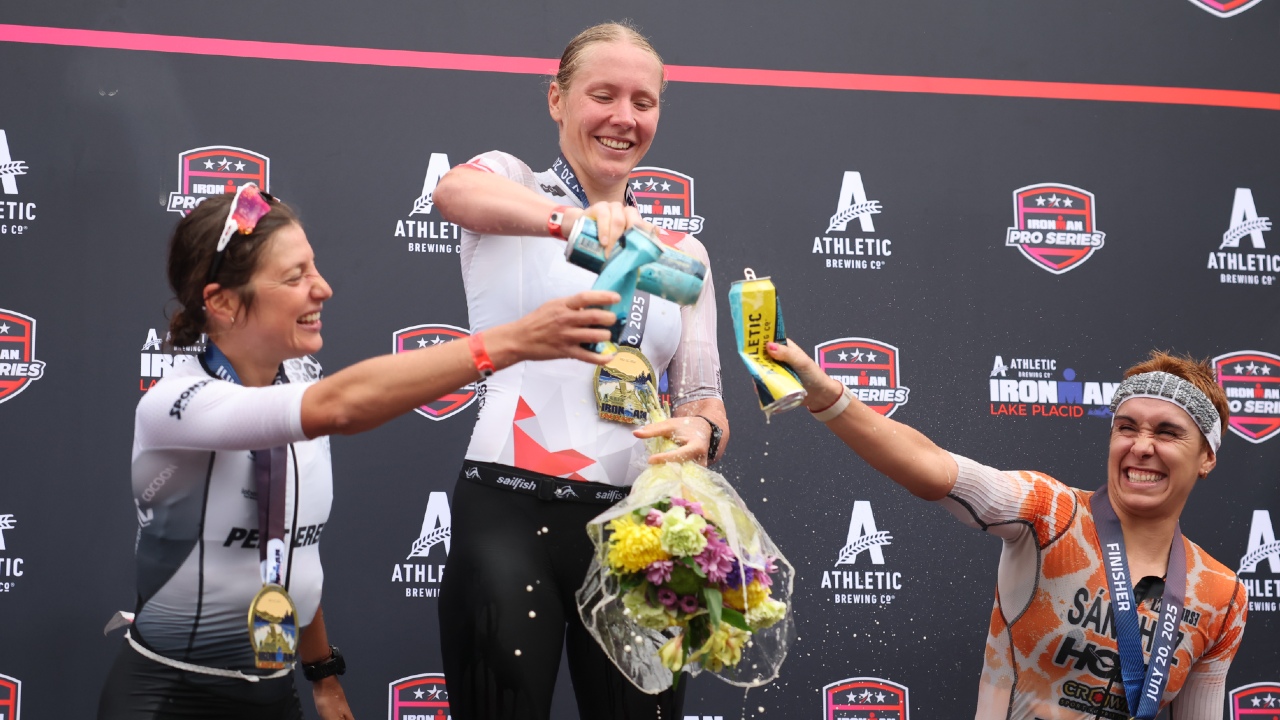
“I also know that I can sometimes take that a bit too far and end up not being aggressive enough, so it’s definitely a balancing act. At least for this year, I feel that I’ve found a good balance in how my stress level should be going into the race.
“It definitely does give me confidence. As I said before Kona, I didn’t think that I was in a position to be able to win that race. Now I go into this next year, and I really want to repeat that achievement.
‘I know not everyone had their best day’
“Now I’m thinking, ‘I can do that’ because I have already done it. Of course, the level is always getting higher, and I know not everyone had their best day this year, so it’s not just a simple case of going along and doing it again, but at least I know that it’s possible for me to do it.”
Since your win in Kona, you have signed a new deal with the Swiss sportswear brand On, which also supports Kristian and Gustav. How does it feel to join your international colleagues and team up with them once again?
“It’s really cool. I’ve been training a lot with the guys over the years, and I do also really look up to them, and they have always been people that I would ask for advice from.
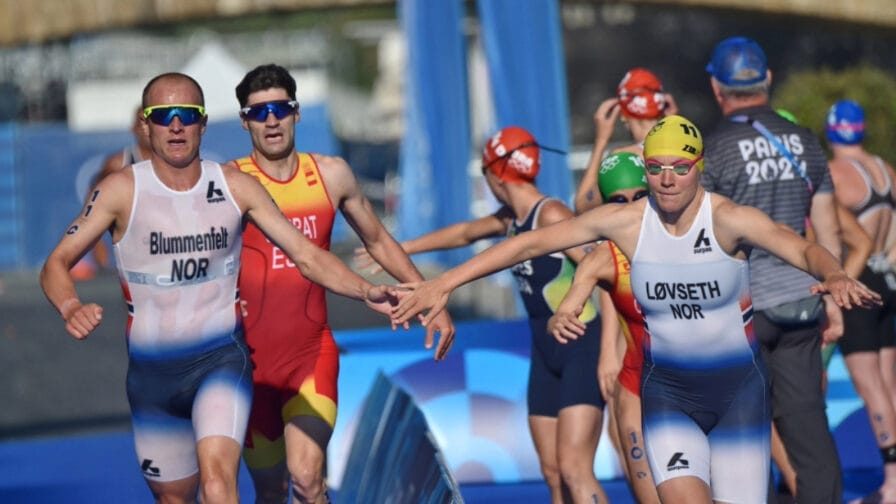
“I have seen that they’re really happy with their partnership. I have seen how On will be there to help them on race days, have people there to support them and stuff like that. They have both only ever had positive things to say about their partnership.
“As I said earlier, I don’t really like making decisions, and especially when it comes to things like this, so I think it’s important that you’re very sure before you sign anything. And I think that is especially the case with shoes, because it’s such a personal thing; they need to fit your running style and your foot, and of course, they need to be fast.
“Aside from it being a good brand, I also think it is cool that we now have three Norwegian athletes who all have the same partners and who have the same smart training kit.”







